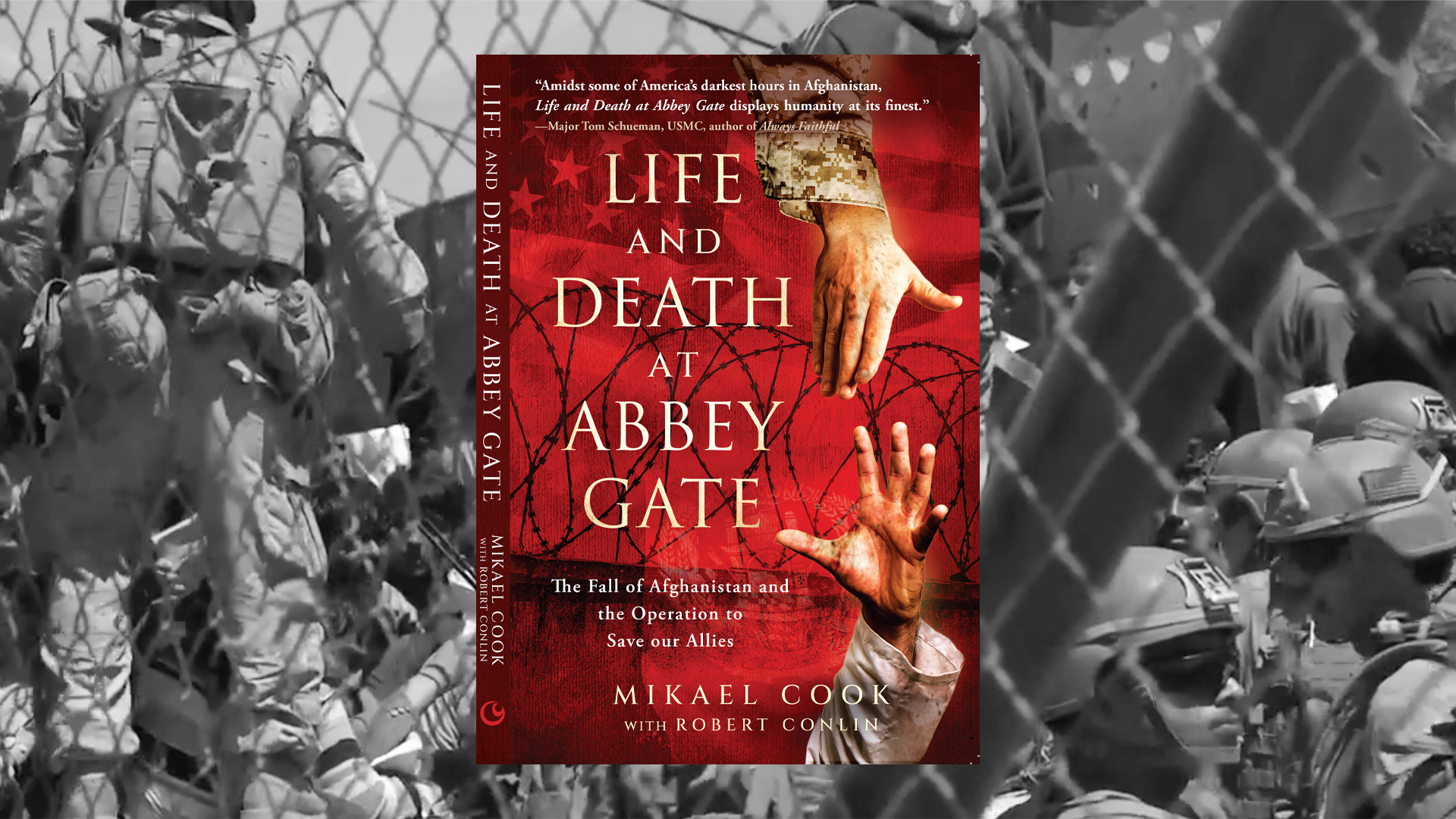

It’s been almost three years since the last American servicemember left Afghanistan, marking the complete withdrawal of a grueling two-decades-long war. But, many veterans of the war didn’t agree the withdrawal was complete after thousands of America’s Afghan allies were left behind, to be hunted by the Taliban.
Mikael Cook was a part of the #DigitalDunkirk team that saved thousands of Afghans before the last flight left the country. Cook personally saved 20 Afghans — but he didn’t stop there. After starting a fundraiser for two Afghans he had helped evacuate, he was hammered with requests about the story behind his efforts.
Instead of repeating the long story over and over again, he decided to write it all down, concerned the finer details might fade after time and too many sleepless nights.
“At that point, I was like, ‘Okay, I think I just need to get this down on the page.’ Mainly for me, so I don’t forget what happened or the order of events,” Cook said. “So I decided to just start writing and kind of just threw up on paper. Before I knew it, I had about 25 or 30,000 words, and I didn’t feel like I was done writing.”
He already had a large portion of the story written, covering his actions to evacuate Afghans. But he needed to get the ground truth, not the white-washed narrative put out by the White House, because he was “more inclined to believe the boots on the ground.”
His notes eventually morphed into “Life and Death at Abbey Gate: The Fall of Afghanistan and the Operation to Save our Allies.” His book was published on February 15 and hopes to set the record straight on what happened on the ground, according to the Marines who were there.
“I think there’s a bigger story that needs to be told here about #DigitalDunkirk, about Abbey Gate, and then a deep dive into what the DoD says happens in their reports versus what the Marines on the ground were saying happened,” Cook said. “I started noticing a vast difference in those narratives.”
Subscribe to Task & Purpose today. Get the latest military news and culture in your inbox daily.
The withdrawal from Afghanistan is still under scrutiny, with no one from the military or federal government held responsible. Despite the madness that followed the announcement of America’s withdrawal, veterans and civilians alike banded together to save as many Afghans as they could.
They worked with service members on the ground, who pulled vetted Afghan allies through to the other side, with a possible ticket to America. Some gained a lot of attention for their actions, brought into the spotlight through photos and videos on social media and the news. But Cook knew many more deserved to be recognized for their work.
“I started thinking about how so many heroes came out of that situation, but only a couple of them have been named so far. […] I know that there’s a ton of other people that did some heroic shit, and I felt like their stories need to be told, too,” Cook said. “I kind of broadened the horizon of the book and brought in and interviewed a bunch of Marines that were there to tell their stories as well.”
Cook didn’t have any trouble finding and interviewing the Marines. He said they seemed almost eager to get the real story out to the public instead of the narrative put out by the White House. The trouble he faced was conducting the actual interviews.
“Well, I mean, emotionally, it was definitely a challenge. All the interviews I did, everyone was crying in almost every interview. I feel so strong for these dudes that were there and the shit that they saw,” Cook said. “That moral injury, you could just tell in all of these interviews that these guys are sort of still struggling with what they saw. Some were getting help, and some weren’t, but you can tell it left a lasting impact that will probably last these guys forever.”
The war-weary public has moved on from what happened in Afghanistan after Russia launched a full-scale invasion of Ukraine or, more recently, Hamas’ attack on Israel. Cook’s “lofty goal” for his book is that it will encourage policy change, like passing the Afghan Adjustment Act.
Until that happens, he hopes the public will read it and learn what really happened.
“My biggest goal is for people to read about it and learn what happened. Like you said, not only is it old news, but a lot of people just never knew what happened,” Cook said. “I mean, even my super close friends, to this day, still don’t comprehend what happened during the evacuation, why we evacuated, or any of that.”
The latest on Task & Purpose
- The Air Force wants retirees to help fill gaps in the service
- Navy allows sailors to put hands in pockets as hell freezes over
- The Army’s next-gen combat helmet is now arriving with soldiers
- Navy now allows sailors to wear leggings under PT shorts
- Legendary Marine Scout Sniper Chuck Mawhinney dies at age 75